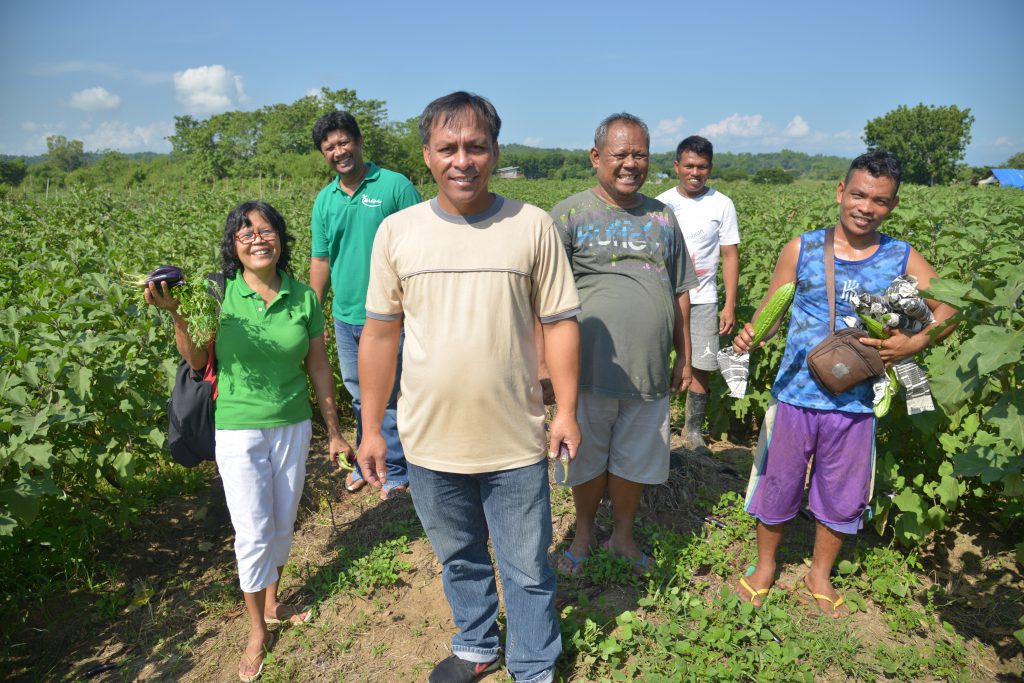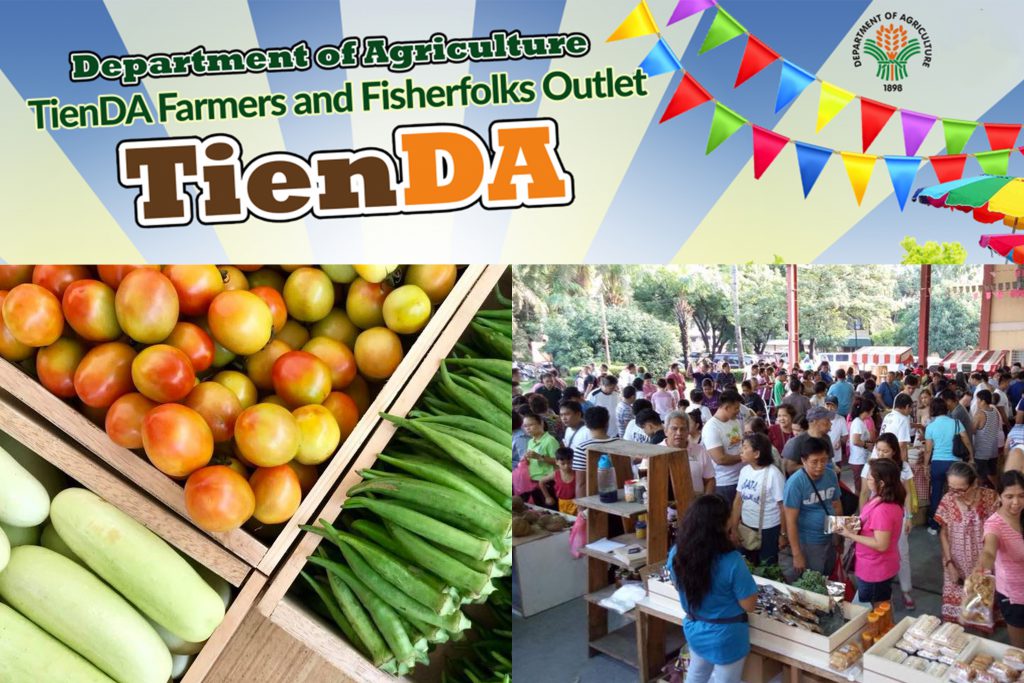
While some farmers may look at the world of marketing as unfamiliar ground, farmers of Sta. Ignacia, Tarlac’s Hardinero Agriculture Cooperative found that they can tame the trade game and be champions so long as they persevere. Through their participation in the Department of Agriculture’s (DA) TienDA Farmers and Fisherfolks’ Outlet, they have proven that the best merchants in agriculture are the producers themselves.
No traders
Launched in 2017, TienDA is a market linkage scheme conceptualized by Secretary Emmanuel Piñol to provide producers a venue to directly sell their products to consumers at farmgate prices.
“It seeks to eliminate unnecessary layers of traders in the supply chain, thereby allowing farmers and fisherfolks to command fair and reasonable prices for their produce. It also benefits the consumers as they are able to buy fresh and cheaper agri-fishery goods from the outlet,” Carolyn Castro, DA marketing specialist explained.
In a setting similar to trade fairs, products sold at TienDA range from raw and processed products of rice, fruits, highland and lowland vegetables, among others.
Every month, the DA invites farmers/ farmers’ groups from nearby areas such as Region 3, 4A, 4B, and Cordillera to participate in their regular TienDA, which is usually done every last Thursday and Friday of the month at the DA grounds in Quezon City. Some of their Regional Field Offices (RFOs) also conduct local TienDA’s in their areas of operations.
Ready to be agripreneurs
Before joining TienDA, the Hardinero Coop members used to sell directly to farmers at small volumes.
Since their registration in 2016, they were invited by local government units and national agencies to participate in trade fairs. They also catered to customers who walked into their office in Sta. Ignacia to buy milled rice.
“It was challenging for the group. Members had to wait for the coop to sell all the consigned products before they were paid. Sometimes, we could not accommodate everyone who came to us because we do not have enough capital,” coop chair James Tejada Ocampo narrated.
They also struggled in maintaining the quality of rice that they sold as some farmers do not have the capacity to properly dry their produce.
Through the assistance that they received from the DA, Department of Agrarian Reform, and the Bureau of Plant Industry, Hardinero members eventually improved their farming strategies. The group was also a recipient of various technology interventions, which helped them reduce the cost of their farm expenses. Yet, the most remarkable for Ocampo was the market opportunity that presented itself to them.
In 2018, just as the group was storing a huge volume of milled rice supply, the DA-RFO 3 endorsed it to join in the TienDA outlet.
When they began selling there, the coop’s representatives needed not to adjust because they have had similar experiences with consumers early on. However, they sought assistance in transporting their products, to which the DA-RFO 3 kindly responded.
“The DA-RFOs are providing necessary assistance to participating farmers/ groups until they are able to promote their products on their own,” Castro noted.
At present, Hardinero is among the regular producer-participants in TienDA. Ocampo confirmed that they can now consolidate and sell 200-400 sacks of milled rice at 25kg/sack every month at the said outlet.
“We buy rice from farmers and members based on the prevailing market price, plus a P0.10/kg incentive for members. During production, they also pay lower prices for our regular services offered, such as rental of farm tractor, dryer, and harvester,” Ocampo disclosed.
At TienDA, the coop sells milled rice at P875/sack (25kg/sack) or P35/kg, lower than the current market price of P38-39/kg.
Closing the gaps

Other farmer-groups are also participating in TienDA-related activities in the country.
“This is one of the advocacies of the DA to ensure available and affordable food for Filipinos, and for farmers to have a sustainable market opportunity,” Castro said.
For the Hardinero coop, challenges did not remain in their hands. They have acquired their own vehicle to transport their goods to the market, and their group is also expanding.
“The farm interventions have helped our members reduce their expenses and the TienDA washed our marketing problems away. We have also created more jobs for other people through our added services in the coop, and we are happy to help our clients have access to affordable, quality rice,” Ocampo elaborated.
Today, they are focused on maintaining their strength as more farmers show interest in joining them. Recently, they welcomed 27 new members of the coop. They are also aiming to push for better quality of their products so as not to waste the trust that their customers have bestowed on them.
“As farmers, we now see the fruits of our labor and we are enjoying them. I learned that a farmer is not only meant to stay in the farm, but they can also venture into agribusiness,” the 42-year-old chairperson realized.
This story was published on PhilRice Magazine April – June issue. Read: https://www.philrice.gov.ph/e-magazine/




